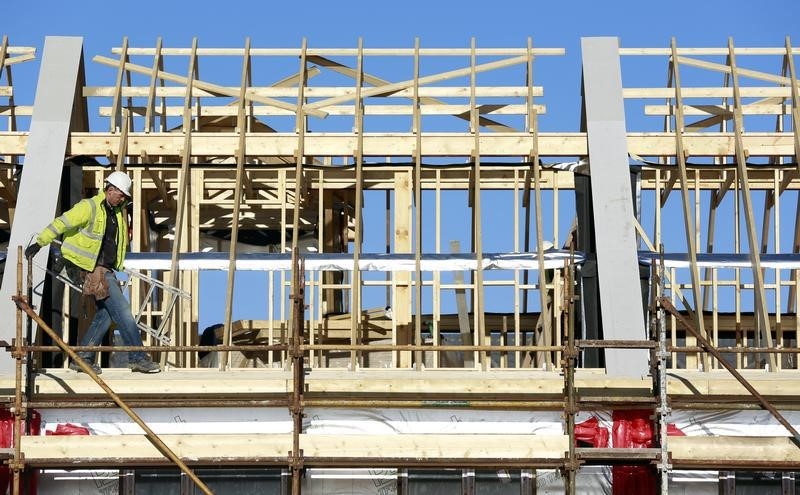By Padraic Halpin
DUBLIN (Reuters) - Irish residential property prices rose at the slowest annual rate in more than a year in June as new restrictions on mortgage lending have stunted the market's recovery from a real estate crash.
Compared to the previous month, prices rose just 0.1 percent in June, the central statistics office said on Monday.
Ireland's central bank introduced restrictions on mortgage lending in February to try to ensure price rises do not return to unsustainable levels.
House prices have bounced back after being cut in half by the bursting of a property bubble in 2008, with annual growth of over 16 percent at the end of 2014 far outpacing the rest of Europe including booming markets in Sweden and Britain.
In June, prices rose 10.7 percent from a year earlier, the slowest since May 2014.
The data followed figures last week showing a slowdown in the number of mortgage approvals as the new central bank rules force lenders to subject most buyers to an 80 percent loan-to-value (LTV) limit.
"This slowdown was probably inevitable given the very rapid price growth seen between April and October 2014, but it also reflects the impact of tighter mortgage lending rules," John McCartney, director of research at estate agent Savills (L:SVS), wrote in a note.
"Agents are reporting that there has been a definite cooling in the market. Therefore we expect price growth to be modest at best for the remainder of this year."
Ireland's Davy Stockbrokers said its forecast that house price inflation will slow to 5 percent by December was now looking overly optimistic.
Prices across Ireland are still 37 percent below their 2007 peak.
House prices in Dublin, which has led the recovery through a combination of an improving economy, a release of pent-up demand and a major shortage of houses, fell 0.4 percent month-on-month in June, the fourth monthly fall this year.
Annual price inflation in Ireland's capital eased to 11.1 percent, half the 23 percent rate recorded in March.
Analysts said the sluggish pace of house building together with an economic recovery forecast to beat the rest of the EU for a second successive year should put house price growth on a more sustainable level following another sluggish few months.

"With increasing signs of positive wage growth in the Irish labour market, rising incomes should allow Irish house prices to rise moderately over the medium term without stretching affordability further," Davy chief economist Conall Mac Coille said.